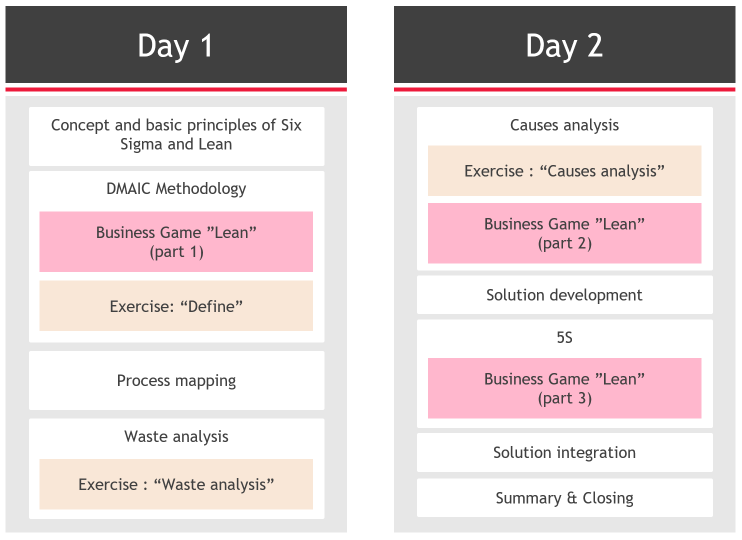First steps towards Lean Six Sigma expertise: get your Yellow Belt certification!
The Lean 6 Sigma Yellow Belt training course provides a basic understanding of Lean, and practical tools and techniques for making improvements as a stakeholder or employee in an improvement project, or as part of a department’s continuous improvement programme. This way of working creates more value for the client, the department or the organisation as a whole.
Training type: Open classroom and In-Company
Timing: 2 days
This training will enable you to:
Pedagogical approach
Over two days, the course combines conceptual presentations, discussion, and experience-sharing, practical exercises and application to a case study, game-based learning, and the provision of a toolbox. Regular assessment of learning outcomes is provided by means of quizzes.
Content
This training is aimed for:
No prerequisites are required.
Typical program

